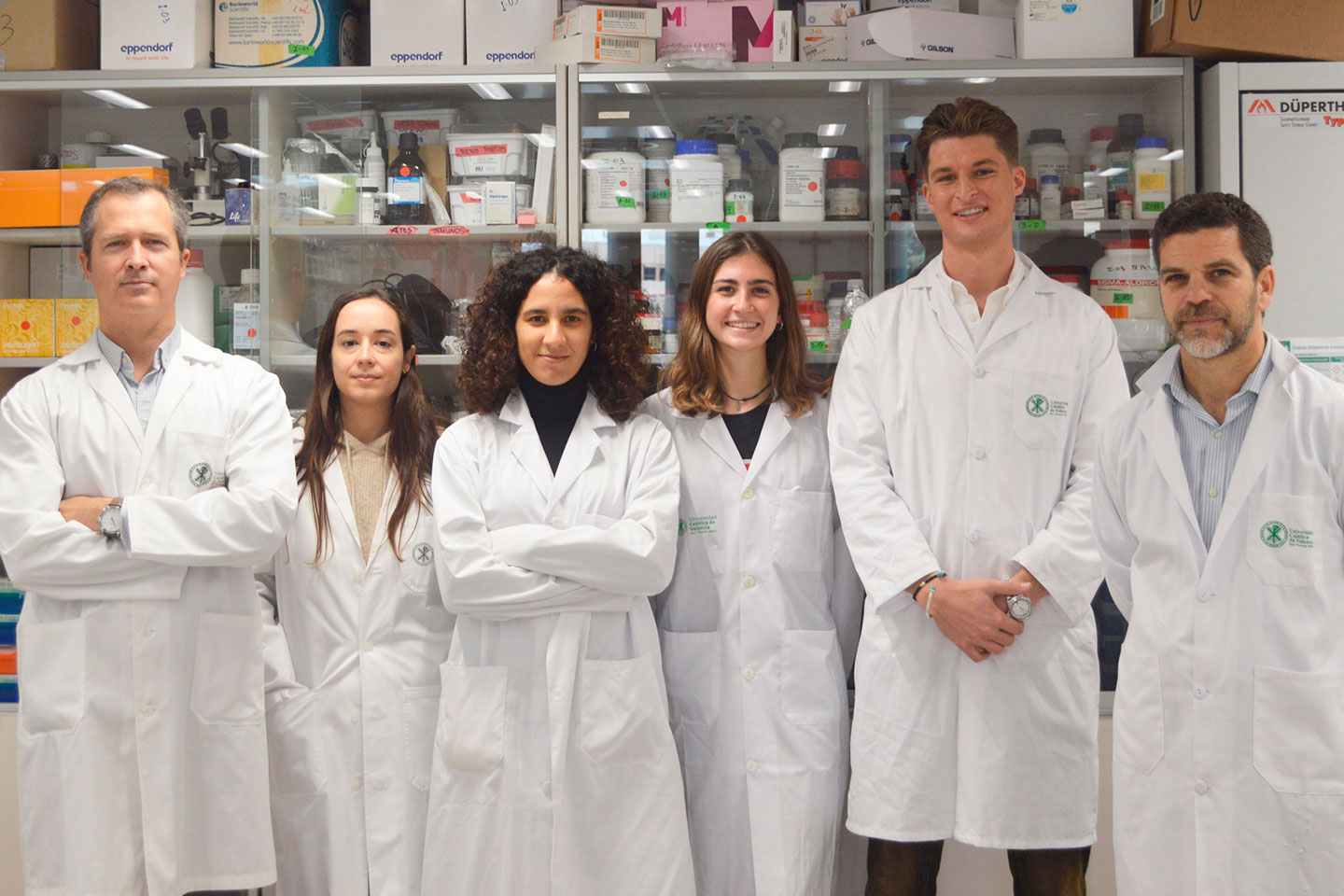The project “Targeting RNA as an approach for treating retinal diseases” (RETORNA), presented by a consortium made up of eight European partners and led by the Catholic University of Valencia (UCV), has received funds for almost 2.6 milion euros within the framework of the Horizon Europe programme. RETORNA is a Doctoral Networks Project under the Marie Skłodowska-Curie Actions. The project will finance ten research projects whose main objective is to discover new therapies against blindness using RNA as a target molecule.
Consortium
The RETORNA Project is composed by seven European universities and one research institute: two from Spain (Catholic University of Valencia and University of Alicante), two from Germany (University of Leipzig and University of Tübingen), one from Türkiye (Istanbul Bahçesehir University), one from The Netherlands (Leiden University), one from Ireland (Cork University) and the Italian research institute Fondazione Telethon.
Multidisciplinary approach
Dr. Javier Sancho, professor at the Faculty of Medicine and Health Sciences of the UCV and coordinator of the Project has underlined the advantages of doing research in consortiums of this type, since “it allows you to reach levels that you would hardly reach working alone.” “The quality of the research increases as there may be techniques in which some of the partners are more expert than others, so sharing experiments can make the work more productive and have much more impact,” he added.
Activities foreseen
As far as the program is concerned, Javier Sancho has detailed that the ten subprojects “will address the issue from different perspectives. Some will make use of cell biology, others of bioinformatics and some even of economics”. “For this, an ad hoc doctoral program will be settled in which, in addition to the research tasks of each one, the students will participate in different training courses, not only on scientific topics, but also on topics such as business or social”, he added. In addition, each of these doctoral students will have to carry out at least two international stays, one of them in a company. “In this way, the doctoral students, upon finishing their thesis, will have a training that will allow them to work in the academic world, but also in the industry”, he stressed.
